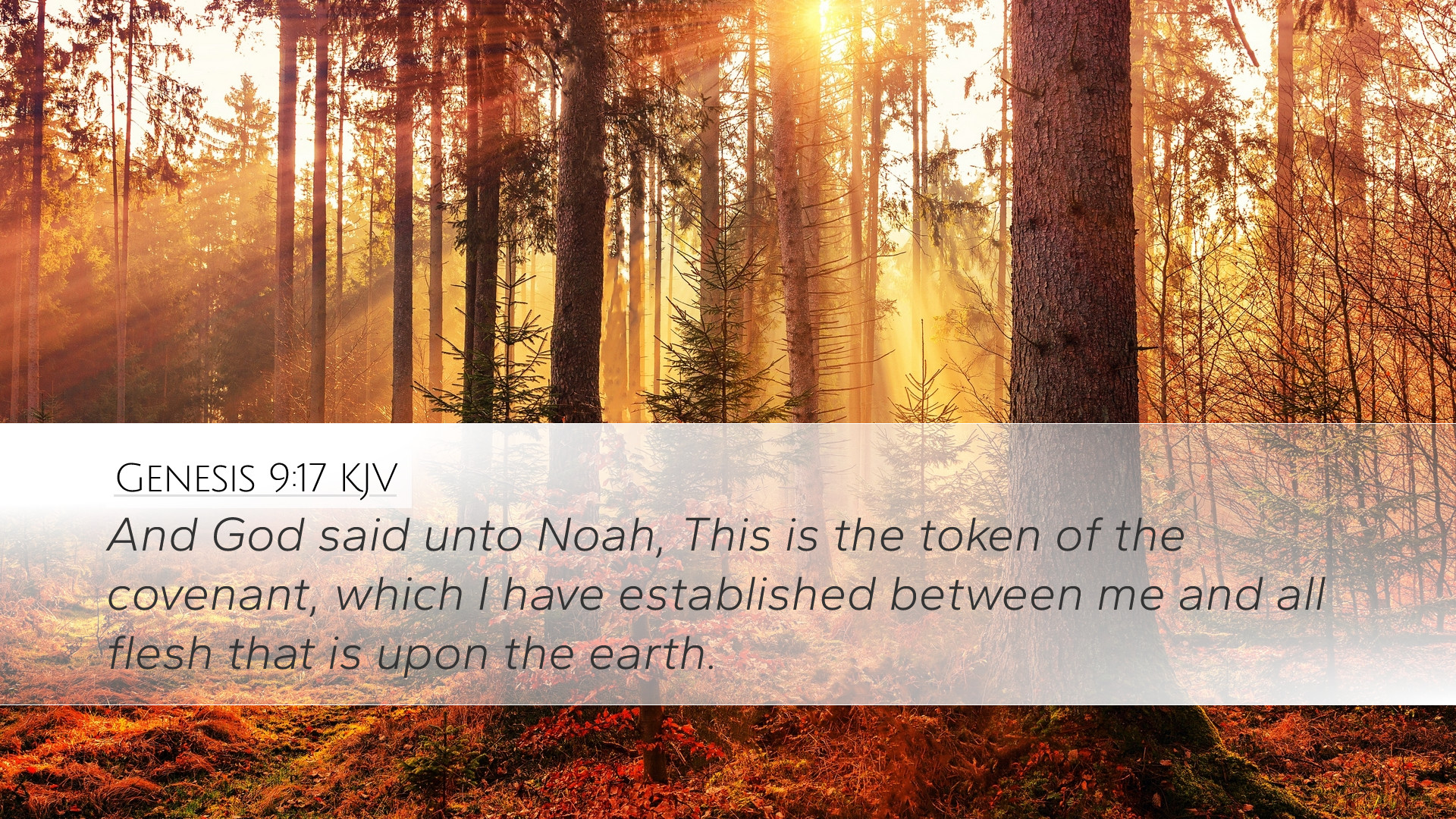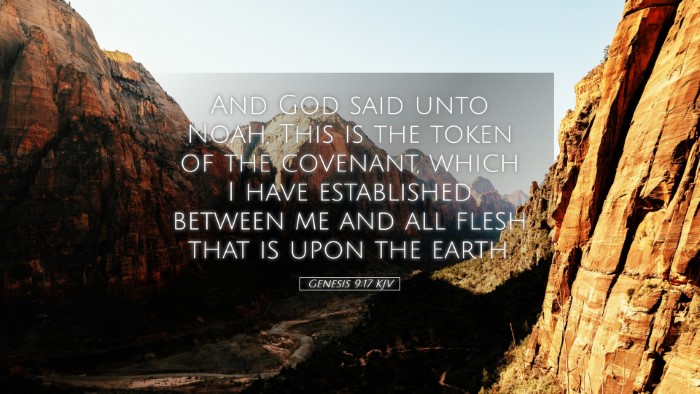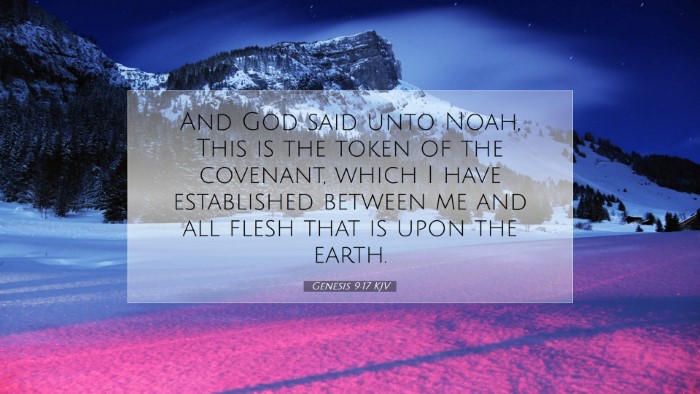Overview
This verse falls within the narrative of God establishing a covenant with Noah after the Flood. The significance of this covenant extends beyond the immediate context and touches on themes of divine mercy, human responsibility, and the enduring nature of God's promises to creation.
Commentary Insights
1. The Nature of the Covenant
Albert Barnes emphasizes that this covenant is not limited to humanity but encompasses all living creatures. This universal scope reflects God's care for creation and His commitment to maintain life upon the earth. God’s covenant assures all life forms of His continued presence and providence.
2. The Sign of the Covenant
Matthew Henry notes the significance of the rainbow as a sign of this covenant. The rainbow serves as a reminder of God's promise never to destroy the earth with a flood again. This sign, viewed after a storm, offers encouragement to believers, symbolizing hope, peace, and God's faithfulness in fulfilling His promises.
3. Human Responsibility
Adam Clarke points out that with the establishment of this covenant comes a responsibility for humans to acknowledge God's sovereignty and to live in accordance with divine principles. The covenant implies that humanity should honor God’s mercy by refraining from violence and corruption, recognizing the sanctity of life that God has established.
4. Theological Implications
The covenant with Noah has significant theological implications regarding God's nature. It reveals that God is both just and merciful, willing to judge sin but also to restore and preserve life. This duality is foundational to understanding God’s dealings with humanity throughout Scripture, ultimately pointing to the ultimate covenant established through Jesus Christ.
5. The Continuity of God's Promises
Matthew Henry again highlights the promise of God’s covenant as an unbreakable assurance. While humanity may falter, the commitment from God stands firm. This reflects a theme that spans throughout Scripture, culminating in the New Covenant, where God's promises are fulfilled in Christ.
Concluding Thoughts
Genesis 9:17 encapsulates crucial themes relevant for pastors, students, theologians, and Bible scholars. It invites reflection not only on God's promises but also on how these promises challenge believers to live righteously in a post-Flood world. It serves as an exhortation for fidelity to God's word and for recognizing the sacredness of the earth and all its inhabitants as divine creations.
This verse invites an appreciation for the depth of God's mercy towards a fallen world and serves as a foundation for understanding subsequent biblical covenants. For the church today, it raises vital questions about stewardship, reconciliation, and the acknowledgment of God's sovereignty over creation.


